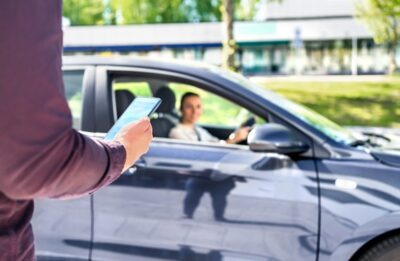
Nobody expects to be involved in a motor vehicle accident. This rings even more true when someone is injured in an accident that occurred while they were the passenger of a rideshare vehicle. Fortunately, if you were injured in a rideshare accident, you have the right to claim compensation from the driver’s insurer or, potentially, the rideshare company’s insurer.
Levying a claim against rideshare companies may seem like a difficult thing to do. Well, it is, but the process is made much easier when you hire a Savannah rideshare accident lawyer to represent you in your claim. While we cannot promise any outcome, John Foy & Associates can assure you that our law firm will do our best to help you recover the highest amount of compensation possible.
Rideshare Accidents Compared to Normal Car Accidents
To identify whether the rideshare driver was using the app, you need to gather evidence proving it. This is not as easy as it sounds, as the rideshare company will likely try to skirt its responsibility. By hiring a personal injury lawyer in Savannah, you increase the odds that you will be able to recover this vital evidence.
While rideshare accidents are just as likely as any other type of car accident, they are not the same legally. This is because rideshare accidents often involve multiple parties who may be at fault and therefore liable for the accident. Normal car accidents only involve other drivers and their insurers, while rideshare accidents include rideshare companies and their insurers too.
Immediately after the accident, the same rules apply; call the police, take pictures, collect witness information, and seek medical attention. Yet, everything after this can be entirely different than it would be with a normal car accident. Rather than relying on a claim that is aimed at the driver’s insurance, you may need to push to make a claim against the rideshare company’s insurance.
Fortunately, there is always some form of liability insurance coverage offered through rideshare applications. This coverage offers liability protection for drivers by paying for bodily injury and property damage they cause while driving for the company. Rideshare company policies do not cover drivers when they are not using the app, but at most other times they are covered.
Get the strong arm
Filing Your Rideshare Claim
It is not easy to file a rideshare accident claim. In many cases, you are required to file a claim with the driver’s personal insurance first. If that claim is rejected, you should have the option to file a claim with the rideshare company. This extra step is required because Uber and Lyft always push to decrease their financial liability for accidents that their drivers are involved in.
You may not have known this, but rideshare drivers are not technically employees of the companies they work for. Instead, they are known as independent contractors. This means rideshare companies are not bound by the rules of vicarious liability, which means they are not responsible for the actions of the drivers who work for them.
Because the rideshare drivers’ actions are not specifically the responsibility of the rideshare companies, the companies have some level of protection from liability when accidents occur. Though, fortunately, most rideshare companies provide some form of additional insurance that protects drivers whose personal insurance will not cover the accidents they are involved in.
Should You File Your Claim on Your Own?
Even knowing all of this, you may be considering filing your rideshare claim on your own. Remember, you may need to file claims against the driver’s personal insurance as well as the rideshare company’s insurance if your first claim fails. This requires a lot of work which could overwhelm you as you try to recover from your injuries.
Rather than subject yourself to that additional burden, make the choice to work with a Savannah Lyft accident attorney when filing a claim. Doing so can save you time and increase the amount of compensation you are able to recover once the case is settled.
Rideshare Accident Settlement Amounts
You are now aware of what you need to do to file a rideshare accident claim. Yet, this has probably left you guessing at how much money you can expect to recover through a lawsuit. Although we are not able to offer you information about typical settlements, we can provide details on the types of damages you stand to recover through a rideshare accident claim.
The two primary types of losses you can claim include economic damages and non-economic damages. Here is more about each one:
Economic Damages
Your economic damages are any tangible losses you incurred due to an accident. Most economic damages can be determined based on how much money was lost through the accident. Some economic damages include:
- Past, present, and future medical bills
- Lost wages due to inability to work after an accident
- Lost opportunities related to injuries suffered in an accident
- Property damage caused by an accident
Non-Economic Damages
Your non-economic damages include any intangible losses you incurred due to an accident. These are often losses that cannot be quantified easily using costs and dollar values. Instead, Lyft accident attorneys in Savannah estimate non-economic damages by evaluating the extent of your economic damages.
Some non-economic damages include:
- Loss of consortium
- Loss of companionship
- Emotional distress
- Pain and suffering
Protect Your Rights and Claim Compensation
If a negligent rideshare driver violated your rights by causing an accident that injured you, you have every right to file a claim against them. While they may not pay for your damages personally, you can still get justice by forcing their insurance to provide fair compensation. This is important, especially because car accidents often cause significant injuries to passengers and other drivers.
Do not wait to file your rideshare accident claim, as doing so could compromise the integrity of your claim. Instead of waiting, work with a trusted law firm like John Foy & Associates to levy a claim against the at-fault party. To get in touch, submit the contact form on this page.
912-400-4000 or complete a Free Case Evaluation form

